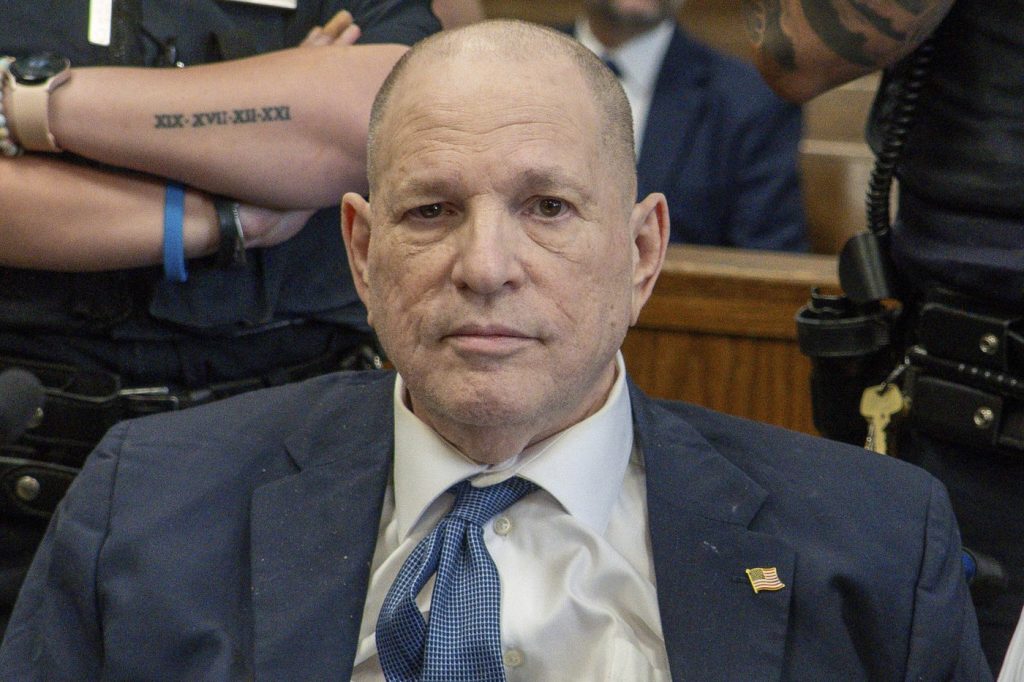Harvey Weinstein, the former movie studio mogul, is set to face a New York City jury again as jury selection begins on Tuesday. This retrial comes five years after he was initially convicted of rape and sentenced to 23 years in prison, a decision that was recently overturned by New York’s highest court, the Court of Appeals. The court found that Weinstein’s original 2020 trial was compromised by improper rulings and prejudicial testimony, thus mandating a new trial.
Weinstein, who has pleaded not guilty to the charges against him, remains adamant in his denial of any wrongdoing related to rape or sexual assault. His health has deteriorated during his time in prison, making him appear older and frailer than during his peak as one of the most influential figures in the film industry. Despite a potential acquittal in this trial, he will not regain freedom, as he is currently appealing a 2022 rape conviction in Los Angeles. His 16-year sentence from that case remains intact, although his lawyers argue that he should be resentenced due to the vacated New York conviction affecting the calculation of his punishment.
The retrial in New York will be overseen by Judge Curtis Farber, who has allocated at least four days for jury selection. The process aims to sift through a large pool of potential jurors to identify 18 individuals—12 jurors and six alternates—capable of evaluating the case fairly. The judge, alongside the prosecution and defense, will employ various questions to narrow down the jury, focusing on potential biases and any conflicts of interest that jurors might have.
Weinstein, now 73 years old, faces two primary charges from his original trial: one accusation of raping an aspiring actor in a Manhattan hotel room in 2013, and another where he allegedly performed a criminal sex act by forcing oral sex on a production assistant in 2006. Additionally, he faces a count of criminal sex act based on a new allegation from an undisclosed woman, who claims Weinstein coerced her into oral sex at a Manhattan hotel.
The selection process for the jury will involve inviting approximately 80 potential jurors at a time to respond to two preliminary questions. First, they will be asked to indicate whether they have any personal or professional obligations that would prevent them from serving. Next, the judge will inquire if anyone feels unable to remain impartial due to the nature of the charges or the extensive media coverage surrounding the case. Those who express concerns will be dismissed from potential jury duty.
Jurors who remain will be questioned further, with 24 individuals seated in or near the jury box. They will be asked about their educational background, work experience, and any acquaintances within law enforcement or individuals who have been victims of crime. Both prosecutors and Weinstein’s lawyers will then have 40 minutes each to ask direct questions to the group of potential jurors, often delving into topics highlighted during the initial inquiries to identify biases.
Should either side find potential jurors unsuitable, they can request their dismissal from the jury pool. If too many jurors are eliminated, another set will be brought in, and the screening process will continue until the full jury is established.










